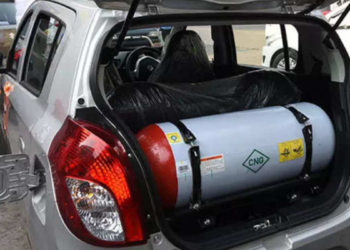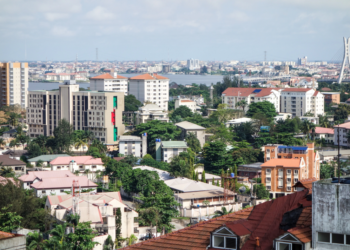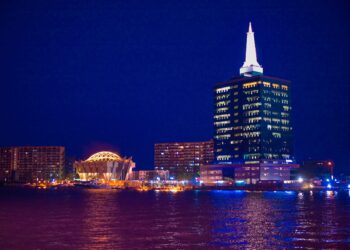The Lagos State chapter of the National Union of Road Transport Workers (NURTW) has launched 3,000 Compressed Natural Gas (CNG) tricycles worth N10.2 billion to address transportation challenges and ease the burden of rising transport costs for residents.
The disclosure was contained in a report by the News Agency of Nigeria (NAN) following the unveiling on Wednesday by Alhaji Azeez Abiola, the Zonal Chairman of the Tricycle Owners and Operators Association of Nigeria under the NURTW.
“The National Union of Road Transport Workers (NURTW), Lagos State Chapter, has unveiled its first 3,000 Compressed Natural Gas (CNG) commercial tricycles worth N10.2 billion to ease transport challenges,” the NAN report read in part.
Abiola, Zonal Chairman of the Tricycle Owners and Operators Association of Nigeria under the NURTW, said the introduction of CNG tricycles would significantly reduce daily operating costs for tricyclists, cutting fuel expenses from N15,000 to between N2,500 and N3,000.
He added that with 3,000 tricycles set to begin operations across Lagos on Thursday, the initiative aims to provide affordable transport options for residents and alleviate economic hardship.
“Over 3,000 CNG tricycles have been deployed to the state to ease the cost of transportation among the residents and at the same time reduce economic hardship.
“As we launch this initiative today, residents will begin to experience reduction in the cost of transportation within their locality.
“This is the number one CNG commercial tricycle in the country that will be in operation. This is because the 3,000 tricycles will begin operations from Thursday.
“This development will reduce the cost of living among our people drastically because it costs a tricyclist N15,000 fuel to operate daily, while CNG operation will cost between N2,500 and N3,000 for daily operations,” he said.
More insight
The NAN report further noted that the initiative is also expected to generate over 5,000 new jobs, benefiting operators and technicians involved in CNG conversions and maintenance.
- Abiola expressed gratitude to President Bola Tinubu for supporting the initiative, aligning with government efforts to promote CNG as a cleaner and more cost-effective fuel alternative.
- While commending the NURTW leadership for facilitating the project, Abiola emphasized the need for additional CNG refueling stations within operational routes.
- He explained that the only existing station is in Agidingbi, Ikeja, whereas most tricycle operators run in areas such as Alagbado, Agbado-Okeodo, Ifako-Ijaiye, Agege, and Alimosho.
He urged the government to establish more refueling stations closer to these routes and lift the ban on tricycles along routes connected to refueling points to ensure smooth operations.
What you should know
The Compressed Natural Gas (CNG) Conversion Incentive Program, led by the Presidential Compressed Natural Gas Initiative (PCNGI), aims to mitigate rising fuel costs and promote cleaner energy in transportation.
- The initiative offers free CNG conversions at approved centers nationwide for commercial vehicles registered under RTEAN, NURTW, or state-owned fleets.
- Non-commercial vehicle conversions range from N1 million to N1.7 million, depending on factors like vehicle type, engine capacity, and cylinder size.
- Despite initial safety concerns, experts at PCNGI-approved centers, including Autogig International Resources Ltd and MBH Power Limited in Lagos, confirm that properly conducted conversions are safe.
- CNG systems feature reinforced cylinders and safety mechanisms such as pressure release valves and automatic shut-off sensors to prevent leaks or irregularities. Although CNG is compressed to 2900psi (200 bar), excess pressure is safely released during refueling to prevent explosions.
Converted vehicles can switch seamlessly between CNG and petrol or diesel using two key modalities in the Electronic Control Unit (ECU).
In time-based mode, the switch occurs within 60 seconds of starting the engine, while temperature-based mode initiates the switch when the engine reaches between 20°C and 40°C, typically within a minute.























